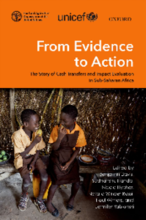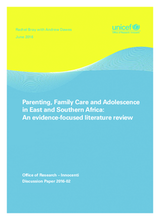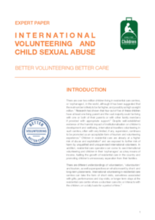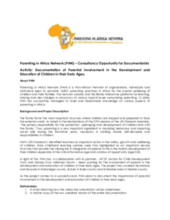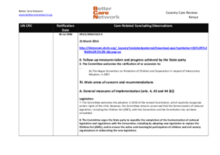This country page features an interactive, icon-based data dashboard providing a national-level overview of the status of children’s care and care reform efforts (a “Country Care Snapshot”), along with a list of resources and organizations in the country.
demographic_data
childrens_living_arrangement
children_living_without_bio
adoption
social_work_force
key_stakeholders
Key Stakeholders
Add New DataOther Relevant Reforms
Add New Datadrivers_of_institutionalisation
Drivers of Institutionaliziation
Add New Datakey_research_and_information
Key Data Sources
Add New DataChildren's Act, 2022 (Kenya)
Prevalence and number of children living in institutional care: global, regional, and country estimates
Social Protection and Disability in Kenya
Kenya Social Protection Sector Review
Country Care Review: Kenya
Child Developmental Disabilities, Caregivers’ Role in Kenya and Its Implications on Global Migration
Research findings on Alternative care system in Kenya for children without parental care
Charitable Children Institutions in Kenya: Factors Influencing Institutionalization of Children
Acknowledgements
Data for this country care snapshot was contributed by consultants with Maestral International.
Displaying 351 - 360 of 447
This is a webinar that occurred on August 19 through the RISE Learning Network.
This book published jointly by FAO, UNICEF, and Oxford University Press presents the findings from evaluations of the Transfer Project, a cash transfer project undertaken in the following sub-Saharan African countries: Ethiopia, Ghana, Kenya, Lesotho, Malawi, South Africa, Zambia, and Zimbabwe. It concludes that cash transfers are becoming a key means for social protection in developing countries.
In this study, the researchers analyze how HIV contributes to the phenomenon of child-street migration in Kenya.
This paper examines existing knowledge on raising adolescents in east and southern African countries, including Kenya, Malawi, Mozambique, South Africa, Tanzania and Zimbabwe. According to the report, and within the context of these regions, parenting is understood to be handled through extended community and family networks.
This post is part of the Better Volunteering Better Care Initiative’s month-long spread of articles aimed at raising awareness around the issues of orphanage volunteering. In this post, the author describes his experiences with international volunteers in the orphanage where he lived and the larger problem of orphanage volunteering.
This paper provides an overview of international volunteering, or “voluntourism,” and its potential vulnerability to child sexual exploitation, particularly in residential care centres.
The purpose of this consultancy shall be to conduct an assessment of the design of ECD integrated model and the extent to which the project achieved its intended outcomes.
Parenting in Africa Network (PAN) is seeking the services of a documentarist.
This country care review includes the care-related Concluding Observations adopted by the Committee on the Rights of the Child.
A U.S. federal court has sentenced a former missionary from Oklahoma to 40 years in prison for sexually abusing children at a Kenyan orphanage. His arrest and conviction—one case among several recent instances of overseas abuse—highlights the need for more vetting procedures in international volunteering, experts say.

